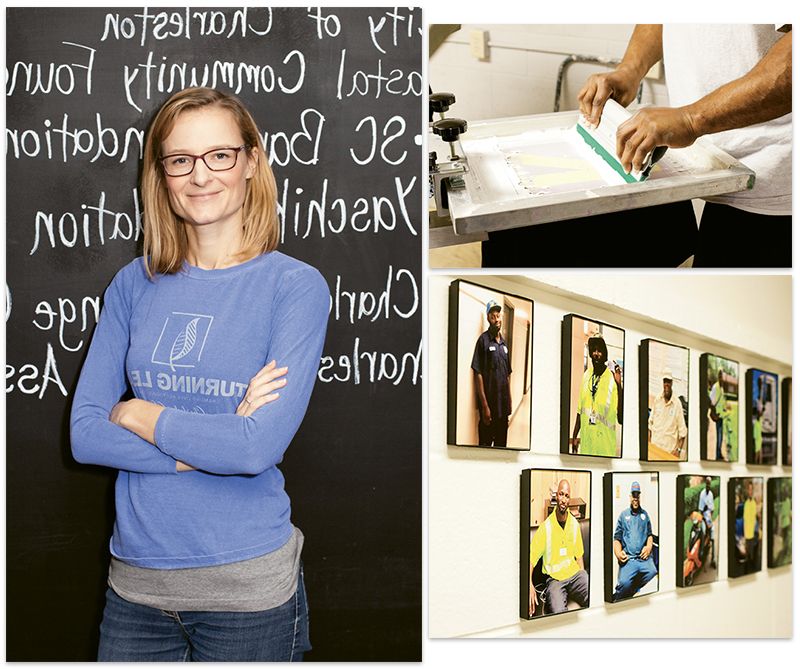The groundbreaking Turning Leaf Project helps men find purpose after incarceration

Amy Barch established Turning Leaf in 2011; photos of program grads at their new jobs line one classroom wall.
Getting out of prison isn’t easy. There’s parole and probation to navigate, child custody issues, securing housing, finding a job, and avoiding the temptation to fall back into criminal habits. That’s what drew Turning Leaf Project founder Amy Barch to reentry work—despite her middle-class upbringing, she understood why the less privileged would take whatever they could get in a world stacked against them. “They haven’t been given much, so I kind of got why they broke rules and made bad decisions,” she explains.
Since earning her degree in law, societies, and justice from the University of Washington (Seattle), Barch intended to help people. After moving to Charleston in 2010, she struggled to find a reentry volunteer opportunity that she fully believed in. So she took a leap of faith, quit her job, and started Turning Leaf in 2011, with the support of then-police chief Greg Mullen and then-mayor Joe Riley.
It began with Barch and one other staff member working closely with men and helping to coordinate their release plans. Though judges and local governments saw her work as a success, she grew frustrated by the participants who continued to cycle through jail and prison after being given opportunities for work and stable housing. Rather than simply providing the logistics, she realized that the solution lay in changing the way people think.
In 2014, Turning Leaf began to intensify its focus on cognitive behavioral therapy (CBT), utilizing the same behavior-altering techniques used to treat depression and PTSD in a six-month curriculum. Barch says they’ve been improving that approach ever since, enrolling 50 men last year. Only those assessed at a “high risk” for being re-arrested are accepted—a decision that dings the program’s completion rate (currently 40 percent) but ensures opportunity for those who need the most help.
Turning Leaf holds daily classroom sessions that encourage smart decisions with real-world scenarios and trains the men in the “soft skills” needed to hold down a job at the on-site screen-printing shop that creates T-shirts for local groups and events. For both class time and work, they’re paid an incentivizing hourly rate. Finally, Turning Leaf helps the men secure permanent employment—many go to work for the county and city of Charleston.
The nonprofit has already drawn national attention, including from former attorney general Jeff Sessions, for its comprehensive approach. There is no national standard for reentry programs, and Barch’s holistic CBT method may be the model needed to establish one. A Turning Leaf replica in Columbia could be in the future, but Barch won’t expand until consistent data verifies her efforts’ effectiveness.
“I want to know that it’s working based on the numbers,” says Barch. “My dream was just to give this a shot and show that it works.”